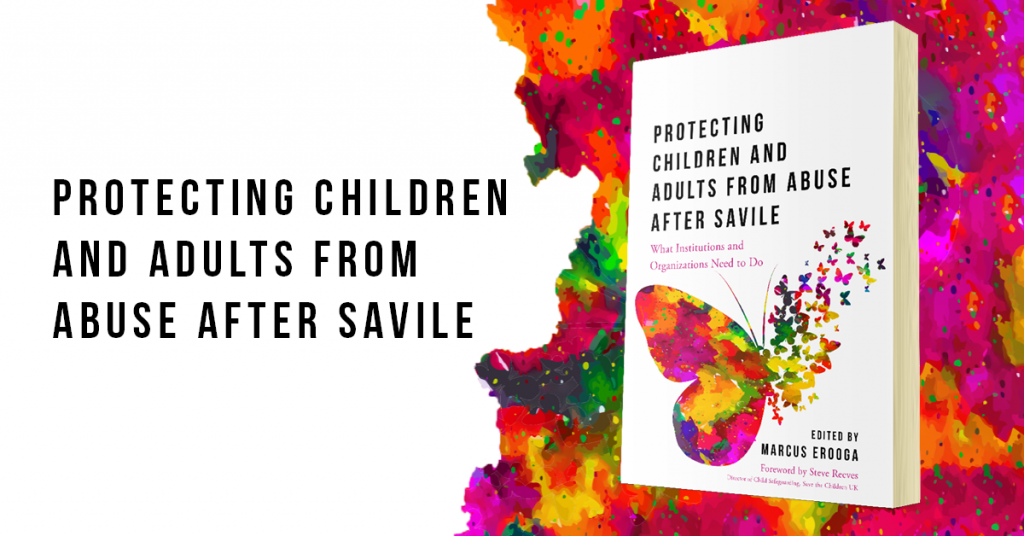Marcus Erooga, author of Protecting Children and Adults from Abuse After Savile and former Chair of NOTA, discusses the impact of the Jimmy Savile case in causing a stream of subsequent high-profile sexual offence allegations to appear.
It is human nature to want to identify casual links. If x is a consequence of y then our world becomes more comprehensible and somehow feels safer. Early in my career I was warned about the inherent dangers of making easy links when the Professor who was giving the research module of my MA, an eminent researcher himself, suggested that all research should be prefaced with “Isn’t it interesting that…”.
In that spirit… isn’t it interesting that since the death of Jimmy Savile in October 2011, there has been a seemingly unending stream of revelations about sexual abuse or at best inappropriate sexual behaviour by powerful people – mostly men? Difficult as it is to remember how such issues were perceived prior to the revelations about Savile following his death, it seems safe to say that nobody anticipated the astonishing series of events which began shortly afterward and seem likely to continue, in one form or another, for the foreseeable future.
To briefly recap, following his death specific allegations about Savile began to be made culminating in police Operation Yewtree. That identified 214 substantive crimes, that is were Savile still alive they would have interviewed him about 214 separate alleged offences. The contrast between that and the image of an eccentric but much loved public figure, family entertainer and prolific charity fundraiser was almost unprecedented. Had the matter ended there it might have been seen as a horrible series of acts by a maverick individual.
The first subsequent major development was a stream of allegations about other high profile celebrities, resulting in a number of them being imprisoned for serious sexual offences. Stuart Hall, Rolf Harris, Max Clifford; all high profile figures, all revealed to be sex offenders. Arguably Stuart Hall’s guilty plea, following vehement denials, at the start of his trial was a key turning point. Again, it is difficult to recall from this distance that prior to that point there was a view in some parts of the media that this was a “witch hunt” targeting celebrities – possibly best summarised as “they’re only after money”. By admitting his guilt, that narrative became no longer credible and it seems likely that seeing justice done led to victims of others in authority feeling empowered to speak and a ’snowball effect’ ensued.
Possibly the best overview of what followed is provided by Operation Hydrant, which co-ordinates nationally investigations into non-recent child sexual abuse involving an institution, organisation or a person of public prominence. On 31st December 2017 3,867 alleged suspects were subject to live investigations of which 338 alleged suspects are classified as persons of public prominence, 7% of the total alleged suspects on Operation Hydrant’s database.
Operation Hydrant records 5,740 alleged victims with 2,470 different institutions on the Operation Hydrant database. The range of settings where adults are in contact with children outside the home and the stark figures are startling: 954 schools, 516 children’s homes, 293 in sport, 242 religious institutions, 148 children & young people’s associations & clubs, 104 health establishments and 213 ‘other’ institutions (prison/young offenders institutions, military, place of entertainment etc.). Truly our conception of the kind of society we think we are, and our notions of the nature of sexual risk to children, traditionally ‘stranger danger’, has fundamentally changed.
The inquiries which have been published provide insights into the functioning of respected institutions: the BBC (the Dame Janet Smith inquiry), the Church of England (the Gibb inquiry); there have been multiple allegations about parliamentarians; the conviction of football coach Barry Bennell and an inquiry established by the Football Association, the list goes on.
Possibly most importantly, because of its scope, duration, and potential to bring about change is the Independent Inquiry into Child Sexual Abuse (IICSA), the Jay inquiry. Its establishment was not a consequence of Savile, but arguably the Savile revelations helped establish a context where the pressure for an objective review of abuse in the country’s institutions became irresistible – again a review of events at the time indicates considerable politicking and reluctance on behalf of government for it to be established in its present, comprehensive, form. At the time of writing, it is set to continue for at least 2 more years, with one report, that on child migration programmes, already published and a number of others to follow. Individually, judging by the example available and ongoing coverage of hearings, they will make sobering reading. Collectively it is to be hoped that their impact will be considerable.
When crowds lined the streets of Leeds as Savile’s funeral cortege was driven on a tour of key locations to celebrate his relationship with his home city, few could have predicted how fundamental the change would be in our understanding of sexual abuse which was to follow.
When she established IICSA in March 2015, then Home Secretary Theresa May said
“The country doesn’t yet appreciate the true scale of abuse… I truly believe it [IICSA] represents a once-in-a-generation opportunity and that once its work is done, we will never look at society in the same way again.” We can only hope she is right and that collectively we will have the courage to bring pressure for action on its recommendations.
If you would like to read more articles like this and hear the latest news and offers on our Social Work and Mental Health books, why not join our mailing list? We can send information by email or post as you prefer, and please also tell us about your areas of interest so we can send the most relevant information. You can unsubscribe at any time.
